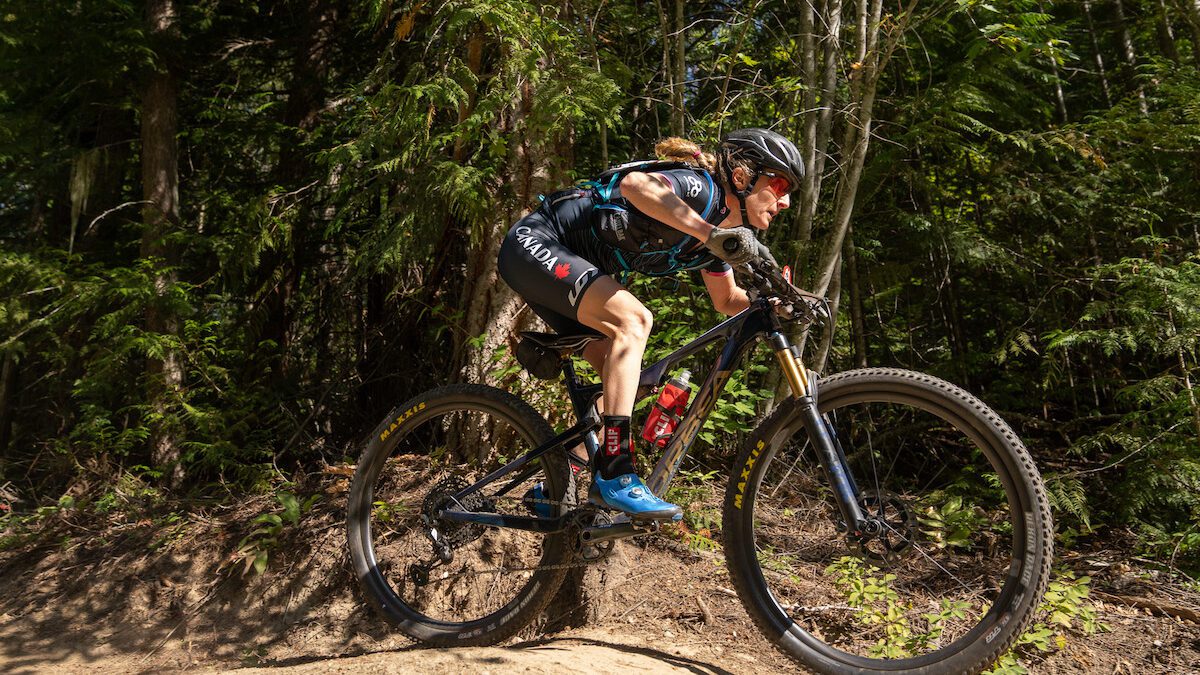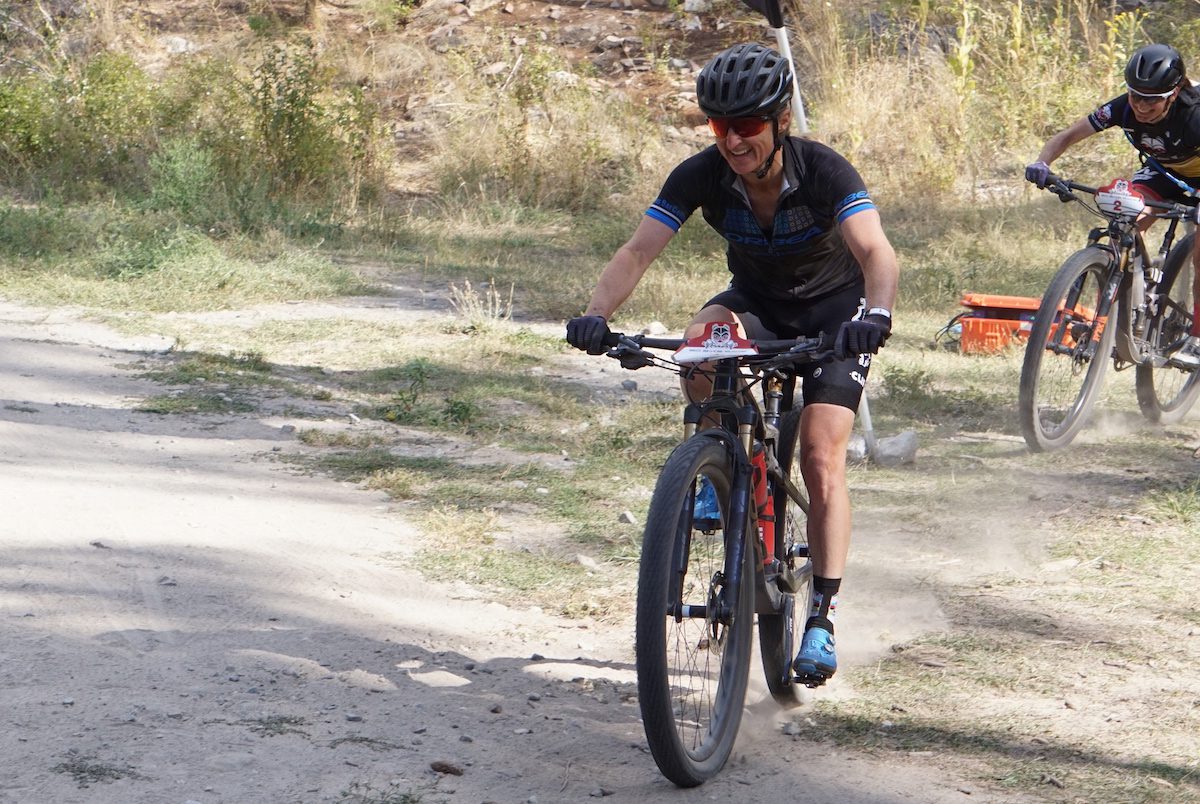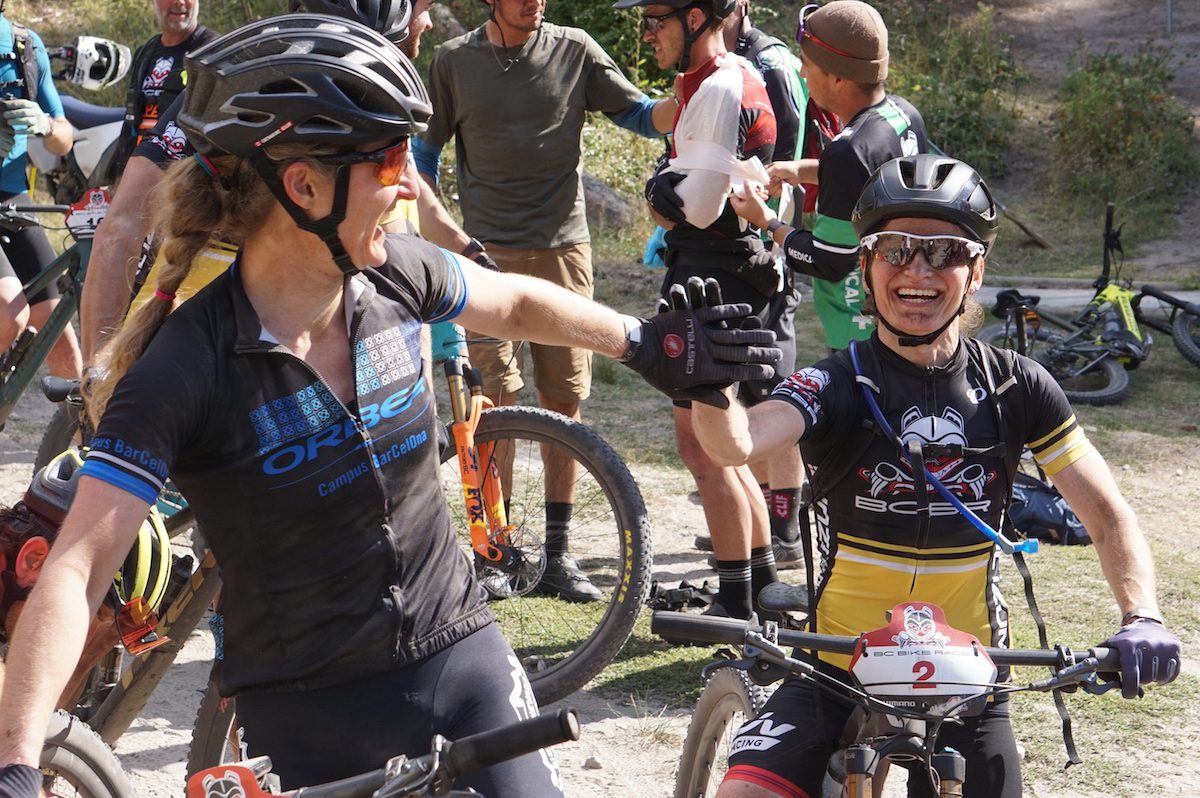One year out: Catharine Pendrel adjusts to retirement
Coaching with Cycling Canada and competition among friends
 Photo by:
Chris Stenberg / BCBR
Photo by:
Chris Stenberg / BCBR
When Catharine Pendrel retired from World Cup racing at the end of the 2021 season, it closed one highly decorated chapter of the Canadian’s career. That chapter included an Olympic medal, two world championship titles, three World Cup overall wins and numerous national championships among a long list of palmares as well as the birth of her first child. It wasn’t the end of her mountain bike career, though. In the year since, Pendrel’s stepped into a position on the other side of the course tape as a coach with Cycling Canada.
I caught up with Pendrel at another event she’s won in the past, BC Bike Race. This year, she won two stages on her way to finishing second behind Sandra Walter. We talked about adjusting to retirement, what she’s learned from being a coach and what it’s like racing against her long-time friend, training partner, and still-active World Cup racer, Sandra Walter.

Canadian MTB: After no racing for a year, you’re six days into a BC Bike Race. How are you feeling?
Catharine Pendrel: I feel better than expected. I was pretty worried about how my back would hold up. But it seems to be pretty good. As far as legs, I feel like I almost have more power now than I did at the beginning. It’s just learning to know how I can push ‘current fitness Catharine.’ You have to adjust to where you’re at. It’s about finding how hard can I push to get the most out of myself now.
How is it being back at the races?
It’s cool, yeah! It’s really fun. When I showed up the first day and was, for some reason, anticipating it being a smaller event, and immediately thought ‘oh this is a really big thing.’ It’s been great caravaning between stages with everyone with bikes on their trucks, it’s such a good atmosphere at these races.

How different does it feel lining up as a technically retired athlete, though you still won todays stage, and racing against Sandra?
The time gaps on the first couple of days made sense, but it was also a moment of ‘oh, that’s how much fitness I’ve lost…’ Within the race, I could be happy with how I felt and how I was racing but then seeing the times at the finish, there’s that bit of realization. Racing has been really fun, but definitely racing and being able to win today is a good feeling.
It’s really fun to race Sandra. It’s a bit hard for me, because it shows how much fitness I’ve lost. But it’s also cool, because it shows how much work those pros put in. You can’t just ride your bike and expect to compete.
“Those pros”? You’re fully retired, then?
Yeah, I didn’t even take out a race license this year.
Is it more relaxing – or a different kind of fun – now that you are retired and don’t have the same pressure to win?
I don’t know. You always have expectations. It’s almost too close to me being really fast for me to be slower. I know how different my life looks now, but other people don’t know how much it’s changed. You have that feeling that everyone anticipates that you stay perpetually fast. But, you know, training works. You don’t stay that fast unless you train to be that fast. I know how different my life looks now, but other people don’t know how much it’s changed.
But yeah, I think it’s been a pretty easy mental transition for me to say that training is not my priority now. I’m just trying to have fun, and focus on passing people on the Downhills!

Other than your family, your priority is coaching now. How was your first year with Cycling Canada?
It was good. Again, it was a big transition. I really enjoyed developing relationships with the athletes. The time on the road, I found really challenging. Last year, I had a child too, and she and my husband came on the road. This year, I was on the road for 100 days. Some, they got to come with me, but it was still a big load to try to balance. When you’re home, you feel like you really have to be home and present.
Have you had any unexpected lessons from being on the other side of the tape?
The biggest thing is learning how to adjust the advice I might give if you’re racing at the front of the field, versus a developing athlete.
Another big thing is learning that, as an athlete, you only see your sport. As a coach, you’re Cycling Canada, which is multiple disciplines. It’s not always as simple as it can seem from the outside.
Canada has slipped down the cross country ranks a bit from our country’s high point. We have lots of really promising young athletes now but haven’t historically had the same success at converting that promise into elite results compared to countries like Switzerland and France – countries which are staying at the top. After one year of coaching, is there anything you want to see change or you think is missing?
There are always a lot of little things. I think a big part of when Canada was at our most successful was that we had really strong domestic racing. I think those race opportunities need to be there for athletes to take risks racing at home before they’re trying it at a World Cup level.
But I think – and hope – things go through cycles. We’ve benefitted from having a couple of people really shine and that will happen again. We just need to give them time to come through the development curve.
